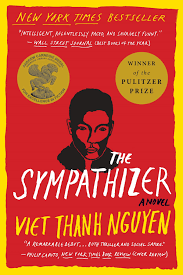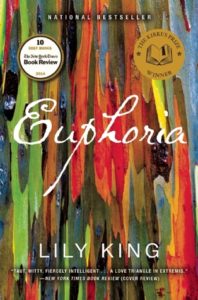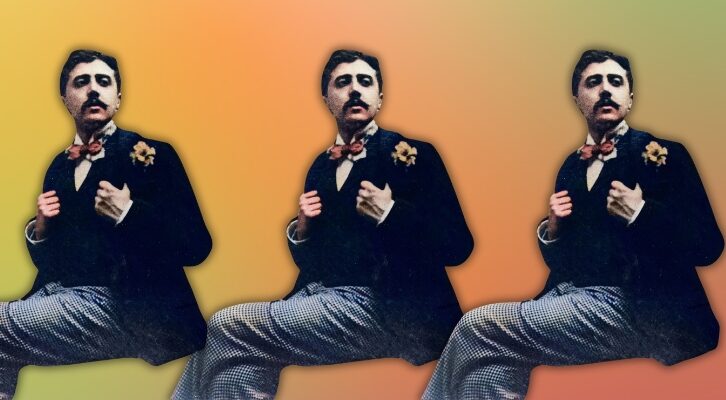My recipe for a peak reading experience: equal parts plot and poetry. My shelf of most-revered novels ranges along this border, a personal Pyrenees of suspense-packed stories told in ravishing language and with deeply complex characters.
Sometimes it makes me feel a bit stateless, as my taste leads me to meander through the boundary lands between literary and genre fiction. But there’s a certain freedom in flying no flag. And I sense many fellow stateless citizens wandering alongside me, searching for propulsive narratives steeped in literary sensibility, and impatient with those who’d rather build a wall between reading nations.
I set out to stake a place for my debut novel, The Captives, somewhere along that border. As I crafted my twisty tale of a prison psychologist who reunites with his long-ago high-school crush when she lands behind bars, thrillerists like le Carré and Lehane taught me well. But I also found endless inspiration from authors who are never tagged as genre writers—and yet produce taut and nimble work that employs the best tricks of the thriller trade. Here are ten key novels that taught me key lessons — literary works written by stealthy masters of suspense.
The Sympathizer, by Viet Thanh Nguyen
The best thrillers start at full tilt. I want to be drawn in on the first page and addicted by the end of the first chapter. Nguyen’s bestseller roars to life as the Vietnam War comes to a calamitous end with the fall of Saigon, the city seeming to crumble under the feet of the wry and unforgettable narrator as he races for the exit. For writers wondering how to lure readers quickly into the narrative stream, Nguyen offers a stupendous model.
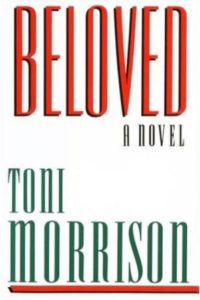
Beloved, by Toni Morrison
Every crime writer should study this novel for its use of withheld information. In the opening paragraph, Morrison introduces her central mystery with a pair of bone-chilling details: the shattering of a mirror and tiny unknown handprints appearing in a cake. The story’s revelations unfurl at a pace that’s somehow both stately and speedy—this might be the most richly textured page-turner ever written. Plus, Morrison absolutely nails the ending, which circles back to that first page and clicks into place in a way that’s deeply satisfying and utterly devastating at the same time.
Euphoria, by Lily King
A dead baby bobbing in the water on the first page? Grisly enough for the grisliest noir, I’d say. But the baby isn’t what it seems, and that’s true of much of this story of anthropologists enmeshed in a love triangle in 1930s New Guinea. Drawing from events in the life of Margaret Mead, King’s writing is lush and inventive. What inspires me most, though, is the way she constructs the fascinating milieu, weaving the results of her clearly meticulous research into the plot without ever slowing it down.
Wavemaker II, by Mary-Beth Hughes
Hughes’s unsentimental, gorgeous novel is a lesson in economy at just 202 pages. She dives deep into her character’s heads—including the ruthless Roy Cohn, notorious attorney and real-life mentor to Donald Trump—but she doles out information about her players in delicate slivers. By the end, her mosaic-like creations are complete, and we understand these people all too well. For capturing characters with a few precise and deadly strokes, a thriller writer could certainly benefit from a close reading of this killer piece of work.

White Noise, by Don DeLillo
The true geniuses of noir tend to be geniuses of dialogue too (see Elmore Leonard). But for an immersion course in the art of the spoken word, I turn to DeLillo’s breakout novel, published in 1984. For starters, there’s the tart discussion between Jack Gladney, a college professor, and his wife Babette, about “the day of the station wagon,” the annual arrival on campus of moneyed students and parents. “It’s not the station wagons I want to see,” says Babette. “What are the people like? Do the women wear plaid skirts, cable-knit sweaters? Are the men in hacking jackets? What’s a hacking jacket?” And few literary exchanges can top Chapter 15, in which Jack and his colleague Murray argue about who was more devoted to his mother, Elvis or Hitler.

Enduring Love, by Ian McEwan
An overlooked determinant of a page-turning novel is a superb premise. McEwan is a touchstone for me here. He typically centers his story on a clever, tightly focused concept, rumbling and fuming already on the first page, a multi-stage rocket fully loaded with forward thrust and weighty implications about fate and morality. The inherent tension of the central premise propels the story with reliable speed. You’ll find this model in many of his works (the euthanasia pact in Amsterdam, the fetal witness to a murder plot in Nutshell), but my pick is this one, which opens with five men dashing through the countryside, trying to catch a runaway hot air balloon that carries a lone endangered child in its basket, and realigning their destinies as they run.
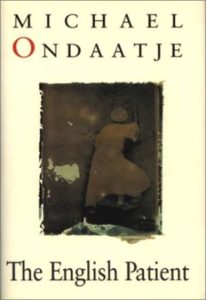
The English Patient, by Michael Ondaatje
Yes, Ondaatje is a wildly talented poet and Booker-Prize winner. Still, his best-known novel functions like a murder mystery with an intriguing twist: the nameless body that turns up in an Italian villa isn’t dead, but burned beyond recognition. Ondaatje’s careful unspooling of his central mystery should inspire would-be thriller writers to take notes on handling flashbacks and multiple timelines—if they can keep from losing themselves in the rapturous prose.

The Great Gatsby, by F Scott Fitzgerald
It’s hardly original as a source of inspiration, but I have to include it, because endings are so exceedingly difficult, and Fitzgerald lands his with a thunderclap still resonating nine decades later. The payoff of the Myrtle Wilson subplot as the nail in Gatsby’s coffin, Nick Carraway’s musings on the American future that recedes before us as we chase it: a final chapter this powerful and true is as elusive as that green light across the bay. All novelists should chase it, even as we accept that we’ll never quite get there.


